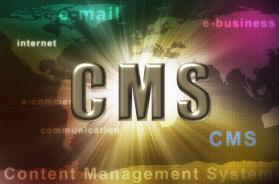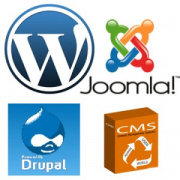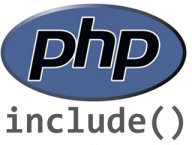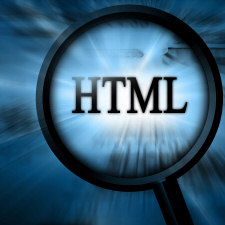Learn Why This Website Uses Static HTML Over a CMS
 Back in 2012 when I was constructing the template and content management for
this site ( YurTopic.com ), I was debating whether to use a CMS (Content Management System) or
Static HTML. After experimenting with a few CMS's like Word Press, Mod X,
and Drupal, I came to the realization that I wanted the best health and results
for this site, and I ultimately chose Static HTML as the winner.
Why? Lets find out.. Back in 2012 when I was constructing the template and content management for
this site ( YurTopic.com ), I was debating whether to use a CMS (Content Management System) or
Static HTML. After experimenting with a few CMS's like Word Press, Mod X,
and Drupal, I came to the realization that I wanted the best health and results
for this site, and I ultimately chose Static HTML as the winner.
Why? Lets find out..
First Off, What is a CMS?
A CMS stands for Content Management System, and is a software program you
install on your web hosting account to manage your website content. This
software uses a database to grab the content to the visitor. CMS's have
been around since the early 2000's, and they are improving with each year.
CMS's are easy to manage by web marketers because making templates and adding
new content is relatively easy, especially for web marketers who have little
technical experience in HTML. But there are limitations and drawbacks to CMSs (as explained later).
Here are the Top 5 Most Popular CMSs:
-
 WordPress -
This is the most used CMS on the web. It has been around the longest
and this is exactly why it is the most popular. It has a large user
base, and you will find a large community that will help you get going with
it. There is also a lot of plugins for it. This CMS is very easy
to setup and maintain. WordPress -
This is the most used CMS on the web. It has been around the longest
and this is exactly why it is the most popular. It has a large user
base, and you will find a large community that will help you get going with
it. There is also a lot of plugins for it. This CMS is very easy
to setup and maintain.
- Joomla - This
CMS is the second most used CMS. Joomla is generally more customizable
than WordPress, but requires a little more technical knowledge to get it going
for you.
- ModX - This is a
newcomer to the CMS world, and it looks very promising! I was so close
to using this CMS for this site. I declined it because it just
couldn't do all the customizations that Static HTML does for me. But
look out for this one, as I feel this one may pass up the previous two as
long as it picks up its user base. The lack of support was another
reason why I left them.
- Drupal - Another
popular CMS that has been around for awhile. It is very easy to use and
with a relatively large userbase that you can get decent technical support.
I have heard that once drupal sites become huge (as in over 1000s of pages of
content), the system starts to lag. This turned me off, and once again
Static HTML looked more and more appealing to me.
- TextPattern -
This is a nice CMS that is simple and has a lot of nice features. I
feel like the main strengths for this CMS is its speed, security,
flexibility along with ease of use. The drawback is that WordPress can
generally do everything TextPattern can but in a more modern easier to use
fashion. TextPattern may be a better choice for large businesses
looking for more speed and security.
And What is Static HTML?
Static HTML (unlike a CMS) does not have any software to install, and it does
not use a database to create pages on demand,
but rather it simply uses physical files and folders on a web hosting account to send
the information directly to the web surfer. Static HTML does not have an
interface (installed software) that allows you to tweak templates as a whole, but rather it uses
basic "Include" files to construct the templates (as explained later).
Static HTML Vs CMS
Static HTML has these 3 main advantages over a CMS:
-
 Speed - Static HTML is
lightning fast!
Pages load quicker because it does not have to dig through a database to
draw each page.
Google has admitted they are looking for sites that load quick, and it
is implemented into their algorithm. The quicker your pages load, the
more that Google will like your site. Web surfers also like to see
fast loading web pages. With static HTML, you have the fastest loading
platform possible. The more pages a website gets for its CMS database, the
slower the site gets. With static HTML, the site will never get slower
when additional pages are added. And you know what is even worse about
a CMS.. Speed - Static HTML is
lightning fast!
Pages load quicker because it does not have to dig through a database to
draw each page.
Google has admitted they are looking for sites that load quick, and it
is implemented into their algorithm. The quicker your pages load, the
more that Google will like your site. Web surfers also like to see
fast loading web pages. With static HTML, you have the fastest loading
platform possible. The more pages a website gets for its CMS database, the
slower the site gets. With static HTML, the site will never get slower
when additional pages are added. And you know what is even worse about
a CMS..
With more and more people using CMSs these days, the more CPU use will be
taken up by the database servers that they run on. What does this
mean? Most people who host websites use a shared hosting account (like
what this website uses currently). Shared hosting means that a lot of
users are on 1 computer. This means that hundreds of users are all
using one database server to run all their CMS websites on. Me, I
don't have to worry about this because I am using static HTML, this site
does not use a database at all. And if the database happens to crash
on this shared hosting account im on, my site will not be affected and will
still load lighting fast - all thanks to static HTML!
 People who decide to use a CMS and are serious about their site, visitors,
and page loads, will want to look into dedicated servers. Dedicated
servers are expensive and range from $150 - $400 per month, but you know
that your site will run on it's own computer, so you will have a database
server all to you. This should especially become the case if your CMS
site exceeds over 10,000 visits per day. What's nice about static HTML
is that I've had static HTML sites that had roughly 50,000 visits per day
with no slow downs! Most CMSs would be in trouble at this traffic
level. Static HTML sites can live healthfully up to around 150,000
visits per day on shared hosting accounts until a dedicated server would be
considered. People who decide to use a CMS and are serious about their site, visitors,
and page loads, will want to look into dedicated servers. Dedicated
servers are expensive and range from $150 - $400 per month, but you know
that your site will run on it's own computer, so you will have a database
server all to you. This should especially become the case if your CMS
site exceeds over 10,000 visits per day. What's nice about static HTML
is that I've had static HTML sites that had roughly 50,000 visits per day
with no slow downs! Most CMSs would be in trouble at this traffic
level. Static HTML sites can live healthfully up to around 150,000
visits per day on shared hosting accounts until a dedicated server would be
considered.
-
 Security - This is the second main concern with
a CMS. There are loopholes everywhere in CMSs, and hackers are trying to
find ways to exploit them every day! CMS sites are getting hacked into
constantly. Patches for CMSs come out all the time, and people who use
CMSs need to stay updated with all patches that come out and you should patch
immediately. Static HTML never needs patching, and there are virtually no
loopholes to worry about. Security - This is the second main concern with
a CMS. There are loopholes everywhere in CMSs, and hackers are trying to
find ways to exploit them every day! CMS sites are getting hacked into
constantly. Patches for CMSs come out all the time, and people who use
CMSs need to stay updated with all patches that come out and you should patch
immediately. Static HTML never needs patching, and there are virtually no
loopholes to worry about.
Now don't let this scare you too much. If you are just running a simple
blog on a CMS, then don't worry too much about security issues. Just stay
up to date with the patches and you will be fine for the most part.
Security should mostly come to a concern when you are running a big business
with lots of traffic. Most major online business use their own proprietary
CMSs built specifically just for their site. Only the most common CMSs (like
the top 5 I mentioned above this article) are the ones that hackers are more
concerned about.
- Flexibility - With CMSs, you are restricted
to only what it can do. With static HTML the limits are beyond your
creativity! Most CMSs (such as WordPress) are limited to what it can
do as far as template changes and other page tweaks. Although,
WordPress (and others) are slowly getting better in this area. It can
take awhile to figure out how to tweak a WordPress site so it looks and acts
just the way you want. With static HTML, you can change anything
exactly the way you want it, with nothing blocking or preventing you from
doing something.
CMSs have major updates periodically that require careful planning when
applying the update. You would need to back things up, and follow a
list of instructions on how to apply the update. Static HTML sites
never need to worry about major updates like this.
Also when it ever comes time to switch to another server, CMSs need their
databases transferred over to the new server, their software reinstalled,
along with their updates. Static HTML on the other hand, just has to
simply "upload" it's files and folders and that's it!
These are the advantages of a CMS over Static HTML:
- Ease of Use - CMSs are generally user
friendly and easy to maintain. You can setup a WordPress (or other
CMS) site generally quicker than a Static HTML site with very little
technical knowledge. Uploading additional pages is also easy and uses
less technical knowledge as well than static html.
Static HTML is also easy to use, but only if you have
experience in it!
 One thing I would like to mention, is that once a static HTML site
is setup and you have
properly configured your Include files for a
good template, along with using an efficient FTP program to upload your
files, then static HTML sites can be just as easy to maintain as a CMS site. One thing I would like to mention, is that once a static HTML site
is setup and you have
properly configured your Include files for a
good template, along with using an efficient FTP program to upload your
files, then static HTML sites can be just as easy to maintain as a CMS site.
One of the main reasons why I chose static HTML to run this site over a
CMS is that I already have experience working with static HTML sites, so I
know what it takes to make a site from static HTML. One of the main
secrets of creating a good static HTML site is all in the INCLUDE files!!!
If you can master Include files, then you can master Static HTML!
Include files are essentially the way your templates/pages get constructed throughout your
static HTML site.
- Template Changes - With a CMS, you can easily make template
changes. You can select a large number of pages and easily assign them
a totally different template (without fiddling around with Include files
like with static HTML). This is one of the main reasons why I wanted
to use a CMS over static HTML. With a CMS, you can easily make menu
changes across a series of pages more easy than static html. Also,
adding additional pages is more user friendly than static html. But
this wasn't enough to convince me to use a CMS for YurTopic.
My Reasons for Choosing Static HTML Over CMS
 The main reason why I chose static HTML over a CMS is because I feel like I have
SOOO much experience using Include files that I can make a very flexible and
customizable site that the main advantages of a CMS (ease of use and template
changes) will not be as of a concern for me. Plus the thought of having
more speed, security, and flexibility was enough to convince me to use static
HTML over a CMS. And I really felt like I could make a HUGE static HTML
site happen, and so far it is working quite nicely for me! YurTopic may
very well become the largest static HTML example site years into the future. Will I
ever switch to a CMS in the future? Right now I am thinking no. The main reason why I chose static HTML over a CMS is because I feel like I have
SOOO much experience using Include files that I can make a very flexible and
customizable site that the main advantages of a CMS (ease of use and template
changes) will not be as of a concern for me. Plus the thought of having
more speed, security, and flexibility was enough to convince me to use static
HTML over a CMS. And I really felt like I could make a HUGE static HTML
site happen, and so far it is working quite nicely for me! YurTopic may
very well become the largest static HTML example site years into the future. Will I
ever switch to a CMS in the future? Right now I am thinking no.
Static HTML is simple, fast, secure, and flexible. Static HTML allows
me to do everything I would like, and as you can see, this site you are on, is
simple, fast, and effective at delivering content to you in the most efficient
way possible. I have no regrets of choosing static HTML over a CMS.
What Should You Use? Static HTML or a CMS?
This all depends on YOU. I do not want to make this decision for you.
You must decide for yourself. I provided all the information above why I
chose static HTML over a CMS, and those are my personal reasons. It
appears that the web is moving away from static HTML and moving to CMSs. I
think that as the future of the web evolves, CMSs will get better, technology
will get faster and better as well to handle them. Right now static HTML
definitely is not dead yet and has many years of use for webmasters out there.
Thanks for reading!
Web Marketing
Creating a Newsletter that Produces Impressive Results!
How To Legitimately Get Images For a Website?
Landing Pages – Converting Clicks to Leads
How To Increase Your Adsense Income
Effective Email Marketing
Things to Consider Before Selling Products Online
Tips for Setting Up an E-commerce Site
Exploring Keywords And Google Bombs
How to Write Great PPC Ads
Understanding Google's PPC Auction Model
How Bot Malware Activity Can Harm Your Website
How To Make Static HTML Templates Using Include Files
Learn Why This Website Uses Static HTML Over a CMS
Page Rank & Link Building Tips and Advice
Top 10 Tips to Improve your SEO Skills
How to Choose Good Affiliate Programs to Make Money Online?
How Long It Takes to Make Money Online from Blogging
How to Make Money Online from Affiliate Marketing
Make Money from Your Website Using Online Ads
How to Setup a New Online Store?
What are the Benefits of Article Marketing?
Will Google ban your site for duplicate content?
How to effectively cloak Clickbank Hop links
Better AdSense Placement for more Clicks
Affiliates or AdSense, What earns more MONEY?
Kill Your Day Job With Internet Marketing
How Effective Business Blogging Is for Business Owners?
Why Register A Domain Name?
What are the Benefits of Internet Advertising?
What is SEO and Why SEO is So Important? |